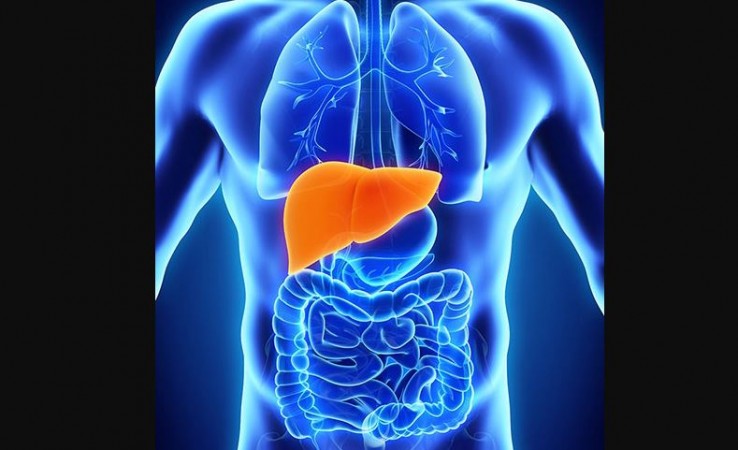
Every day, our bodies expel numerous toxic substances. Whenever we eat or drink, the body absorbs essential nutrients while eliminating waste and non-essential elements. However, when the body fails to expel these non-essential substances, they accumulate and can lead to various health issues. If you're wondering whether your body is detoxifying properly, pay attention to these signs, which indicate an increased level of toxins without the need for testing.
Constipation Issues:
Constipation, characterized by infrequent bowel movements or difficulty passing stool, is a common indicator of toxin accumulation in the body. When waste products and toxins are not effectively eliminated through the digestive system, they can stagnate in the colon, leading to constipation. This stagnant waste can release harmful by-products and toxins, which are then reabsorbed into the bloodstream, perpetuating a cycle of toxicity.
To address constipation and prevent toxin buildup, dietary and lifestyle modifications are essential. Increasing fiber intake through whole grains, fruits, and vegetables can promote regular bowel movements and facilitate toxin excretion. Hydration is also crucial for maintaining bowel regularity, as adequate water intake softens stool and supports digestive function. Additionally, incorporating physical activity into your daily routine stimulates bowel motility and promotes overall gastrointestinal health.
Reduced Sweating:
Sweating plays a vital role in the body's detoxification process by facilitating the elimination of toxins through the skin. However, factors such as sedentary lifestyle, dehydration, and certain medical conditions can impair sweating, hindering the body's ability to expel toxins effectively. Reduced sweating may indicate a buildup of toxins in the body, as the skin's natural detoxification mechanisms become compromised.
To encourage sweating and support detoxification, individuals can engage in activities that promote perspiration, such as exercise, sauna sessions, and hot baths. Regular physical activity not only induces sweating but also improves circulation and lymphatic drainage, aiding in the removal of toxins from the body. Staying adequately hydrated is essential for maintaining optimal sweating function, as dehydration can inhibit sweat production. Additionally, incorporating detoxifying herbs and supplements, such as dandelion root and milk thistle, may support liver function and enhance toxin elimination.
Acne Breakouts:
Acne is a common skin condition characterized by the formation of pimples, blackheads, and whiteheads, often resulting from clogged pores and inflammation. While various factors contribute to acne development, including hormonal imbalances and genetics, toxin buildup in the body can exacerbate skin inflammation and trigger acne breakouts. Toxins circulating in the bloodstream can compromise skin health by increasing sebum production, promoting bacterial growth, and triggering inflammatory responses.
To address acne associated with toxin accumulation, adopting a holistic approach to skincare and lifestyle is essential. A balanced diet rich in antioxidants, vitamins, and minerals can support skin health and reduce inflammation. Incorporating foods such as leafy greens, berries, and omega-3 fatty acids can help combat oxidative stress and promote detoxification. Furthermore, maintaining proper hygiene practices, such as regular cleansing and exfoliation, can help prevent pore blockages and reduce acne flare-ups. Additionally, managing stress levels through relaxation techniques, such as meditation and deep breathing exercises, can support overall skin health and minimize inflammatory responses.
Persistent Fatigue:
Chronic fatigue, characterized by persistent tiredness and lack of energy, can be a significant indicator of toxin buildup in the body. Toxins accumulated from various sources, including environmental pollutants, processed foods, and metabolic waste products, can impair cellular function and energy production, leading to fatigue and lethargy. Additionally, toxin overload can burden the liver and other detoxification organs, further contributing to feelings of fatigue and malaise.
To combat persistent fatigue associated with toxin accumulation, prioritizing restorative sleep and stress management is essential. Establishing a consistent sleep schedule and creating a relaxing bedtime routine can promote deep, restorative sleep and enhance the body's natural detoxification processes. Additionally, incorporating stress-reducing activities such as yoga, meditation, and massage therapy can support adrenal health and improve energy levels. Dietary interventions, such as reducing consumption of processed foods and alcohol, and increasing intake of nutrient-dense foods, can also support detoxification and boost energy levels. Finally, incorporating regular exercise into your routine can improve circulation, lymphatic drainage, and overall vitality, helping to combat fatigue and promote optimal health.
Difficulty Losing Weight:
Weight loss resistance, characterized by the inability to lose weight despite efforts to diet and exercise, can be a sign of toxin accumulation in the body. Toxins stored in fat cells can interfere with metabolic processes, hormone balance, and appetite regulation, making it challenging to shed excess pounds. Additionally, toxin-induced inflammation can disrupt insulin sensitivity and metabolic function, further impeding weight loss efforts.
To address weight loss resistance associated with toxin accumulation, adopting a comprehensive approach to detoxification and weight management is necessary. Incorporating detoxifying foods and beverages, such as leafy greens, cruciferous vegetables, and green tea, can support liver function and promote toxin elimination. Additionally, prioritizing hydration and reducing exposure to environmental toxins, such as pesticides and household chemicals, can minimize toxin intake and support weight loss efforts. Engaging in regular physical activity, including both cardiovascular exercise and strength training, can help stimulate metabolism, burn calories, and support healthy weight management. Finally, addressing underlying factors contributing to toxin accumulation, such as poor diet, stress, and sedentary lifestyle, is essential for long-term success in achieving and maintaining a healthy weight.
In conclusion, recognizing the signs of toxin accumulation in the body is crucial for maintaining overall health and well-being. By addressing underlying imbalances and adopting holistic strategies for detoxification and lifestyle modification, individuals can support their body's natural detoxification processes and promote optimal health. Through a combination of dietary interventions, stress management techniques, regular exercise, and environmental awareness, individuals can minimize toxin exposure, enhance toxin elimination, and optimize their health and vitality.
Is there any benefit or harm in drinking curry leaf water? Know what is the effect on health
Know the unique benefits of cardamom peel
Is Drinking Coffee on an Empty Stomach Good for Health in the Morning?